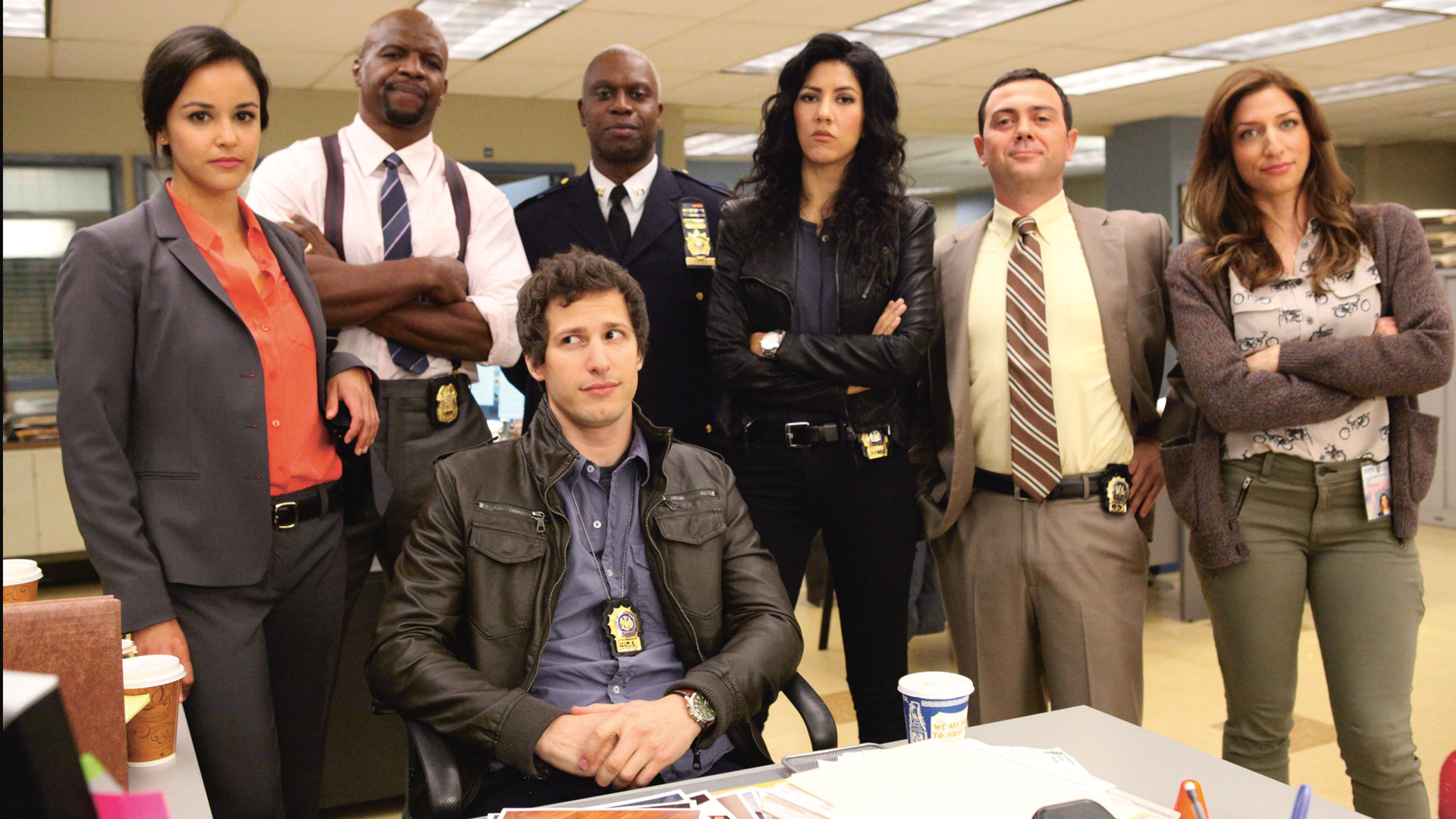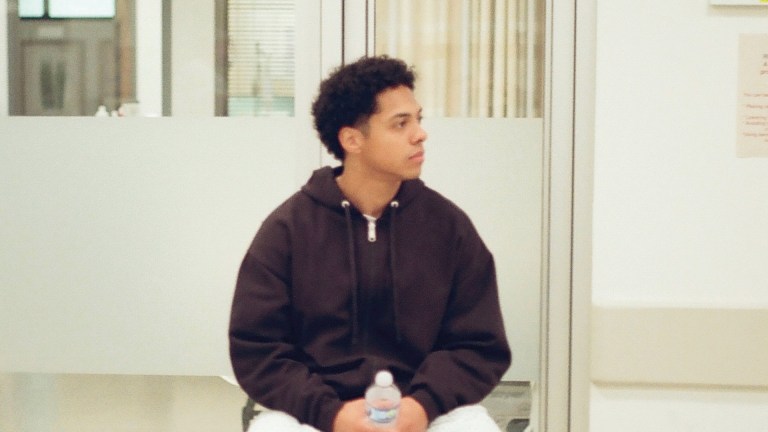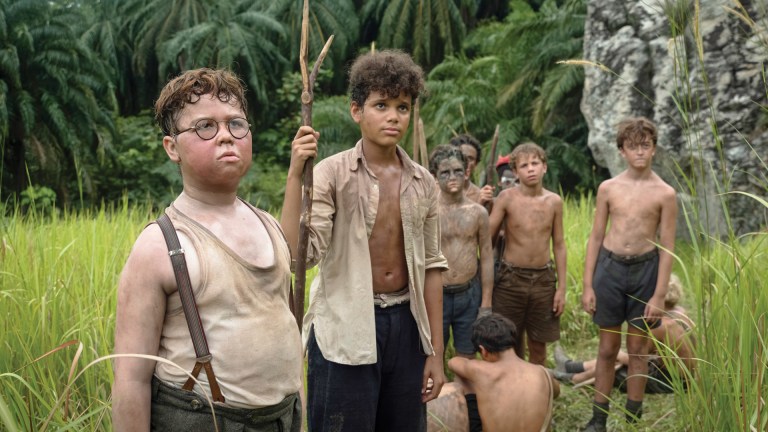Brooklyn Nine-Nine has been going since 2013 and is bloody great. Andy Samberg plays a juvenile but strangely effective detective and a bunch of other people play his friends and colleagues. There’s a strict, overly serious police chief, a prissy and rule-obsessed partner, a sarcastic, extrovert secretary and a scary and dangerous female detective. Then of course there are a couple of fat, white cops who muck everything up.
It’s a classic ensemble piece. Every character pops from the screen. The jokes flow with the speed and quality of a vintage Simpsons episode. It is mostly daft, in the best possible sense, although it is unafraid to do serious subjects in a disarmingly funny way from time to time. The boss is a black, middle-aged gay man. The show has won awards for its portrayal of LGBT characters.
It is extremely similar to the classic of the genre Parks and Recreation, another sitcom about a group of ordinary folk in everyday work getting into largely inconsequential adventures. Both are silly, yes, but at their heart they are about the little families people form in the workplace – and the love they share with each other. Fundamentally, they are positive and optimistic shows about people at their best. All of which is thoroughly un-British sounding, isn’t it?
US sitcoms seem able to draw comedy not just from the dark and tragic corners of humanity but from the bright and joyous ones too
Our sitcoms aren’t about love and joy and ordinary people doing boring jobs in an entertaining way. Our sitcoms are about grotesque caricatures like Alan Partridge or Basil Fawlty. They aren’t about ordinary, lower-middle class people doing everyday jobs in everyday places. They are more likely, these days at least, to be about freaks on the fringes, like in People Just Do Nothing or This Country. And the characters of British comedy tend to be cynical or angry or miserable. Look at the people in The Office. They hate their crappy jobs. The only one who shows any enthusiasm is David Brent, and he’s supposed to be the tragicomic stooge. In Fawlty Towers the only character who ever seems happy is Manuel – and that is portrayed as a form of mental illness.
In Brooklyn Nine-Nine and Parks and Recreation all the characters unapologetically love their jobs and their colleagues. They take pride and draw delight from their work. I’m not saying US comedies are better. But they seem able to draw comedy not just from the dark and tragic corners of humanity but from the bright and joyous ones too. And, in the case of Brooklyn Nine-Nine, do it without being schmaltzy for annoying either. It’d be nice to see the return of a British sitcom that was able to draw irony, pathos and LOLs from love as easily as it does from shit.






